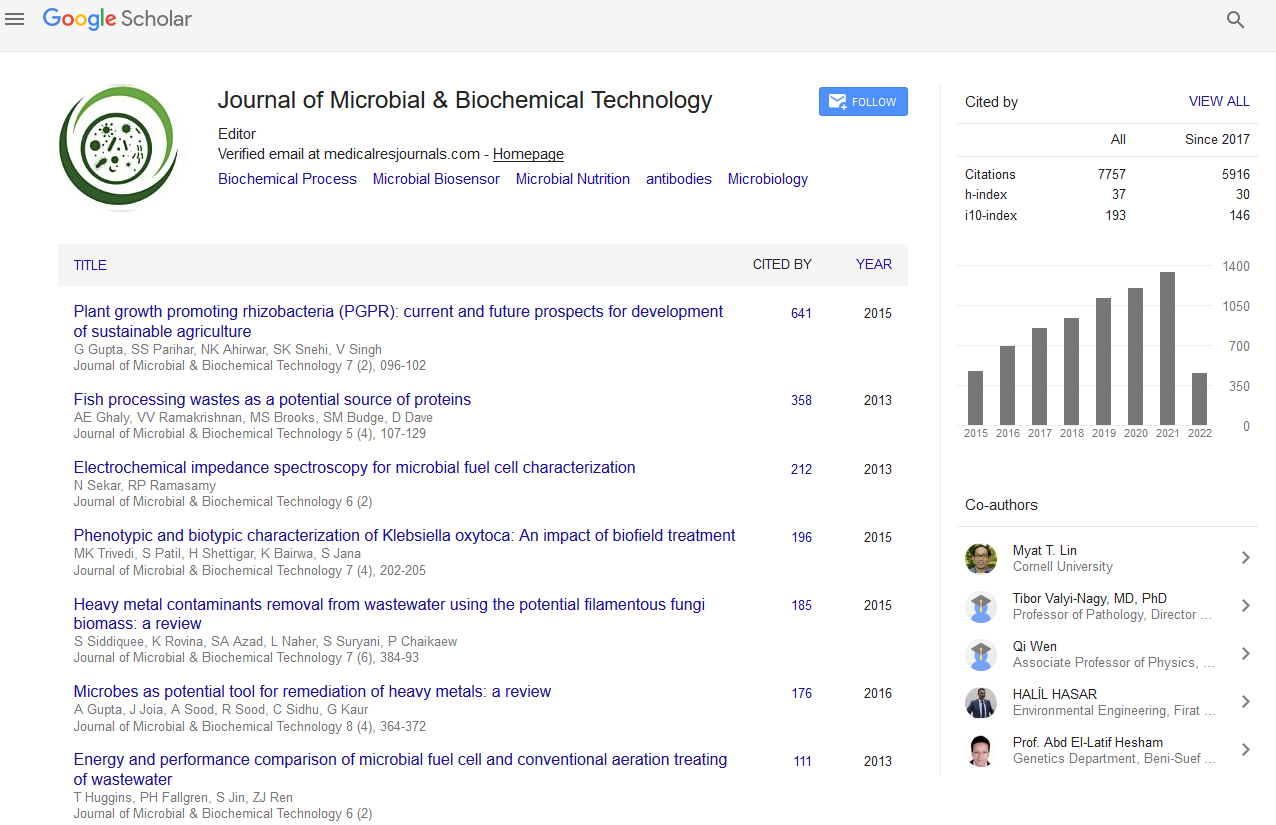PMC/PubMed Indexed Articles
Indexed In
- Academic Journals Database
- Genamics JournalSeek
- Academic Keys
- JournalTOCs
- China National Knowledge Infrastructure (CNKI)
- Scimago
- Access to Global Online Research in Agriculture (AGORA)
- Electronic Journals Library
- RefSeek
- Directory of Research Journal Indexing (DRJI)
- Hamdard University
- EBSCO A-Z
- OCLC- WorldCat
- SWB online catalog
- Virtual Library of Biology (vifabio)
- Publons
- MIAR
- University Grants Commission
- Geneva Foundation for Medical Education and Research
- Euro Pub
- Google Scholar
Useful Links
Share This Page
Journal Flyer

Open Access Journals
- Agri and Aquaculture
- Biochemistry
- Bioinformatics & Systems Biology
- Business & Management
- Chemistry
- Clinical Sciences
- Engineering
- Food & Nutrition
- General Science
- Genetics & Molecular Biology
- Immunology & Microbiology
- Medical Sciences
- Neuroscience & Psychology
- Nursing & Health Care
- Pharmaceutical Sciences
Advances of microbiology for liquid biofuel production
2nd International Conference on Clinical Microbiology & Microbial Genomics
September 16-17, 2013 Hampton Inn Tropicana, Las Vegas, NV, USA
Zewei Miao
Accepted Abstracts: J Microb Biochem Technol
Abstract:
Regardless to biomass feedstock types and formats, microbial conversion is one of the main routes for liquid biofuel production. Microbes for liquid biofuel production mainly include microbiological strains for biomass feedstock growth and production, storage and digestion such as phytoplankton, zooplankton, bacteria and fungi. In the past decade, large efforts have been put on algae improvement for feedstock production and biocoversion microorganisms such as clostridia and industrial yeasts including E. coli, S. cerevisiae, S. solfataricus and T. reesei . Microalgae research mainly focuses on development of microalgae species with high growth rate, high photosynthetic efficient, high-lipid/starch content, low N- and water-requirement culture, harvest and processing technology. As for bioconversion of cellulose to the bioproducts that resemble biofuel, microbiologists actively explore the pathways to create and/or improve native, isolated microorganisms and existing engineering industrial microorganisms. According to the industrial scale efficiency, capacity and durability, the ideal microorganism for liquid biofuel production should possess high substrate utilization and processing capacities, fast and deregulated pathways for sugar transport, good tolerance to inhibitors and product, high tolerance of toxic substrate impurities and high metabolic fluxes and will produce a single fermentation product. Modern synthetic biology and genetic/genomic engineering approaches which are under intense development will be helpful to develop native or recombinant microorganisms. Engineering complex phenotypes could lead to superior bioprocessing strains. Recent efforts to metabolically engineer clostridia demonstrate their potential for biofuel and biorefinery applications.
Biography :
Zewei Miao is a Research Assistant Professor at Department of Agricultural and Biological Engineering, University of Illinois at Urbana-Champaign. He has completed his Ph.D. in the field of ecology from Zhejiang University of China in 1996. With international experiences in China, Italy, Canada and the United States, his research interests include eco-environmental modeling, farming systems management, biomass feedstock processing and bioenergy. As an associate editor, reviewer or panelist, he has been serving for a dozen of international journals and academic conferences. He has published his results in about 50 of peer-reviewed publications.


